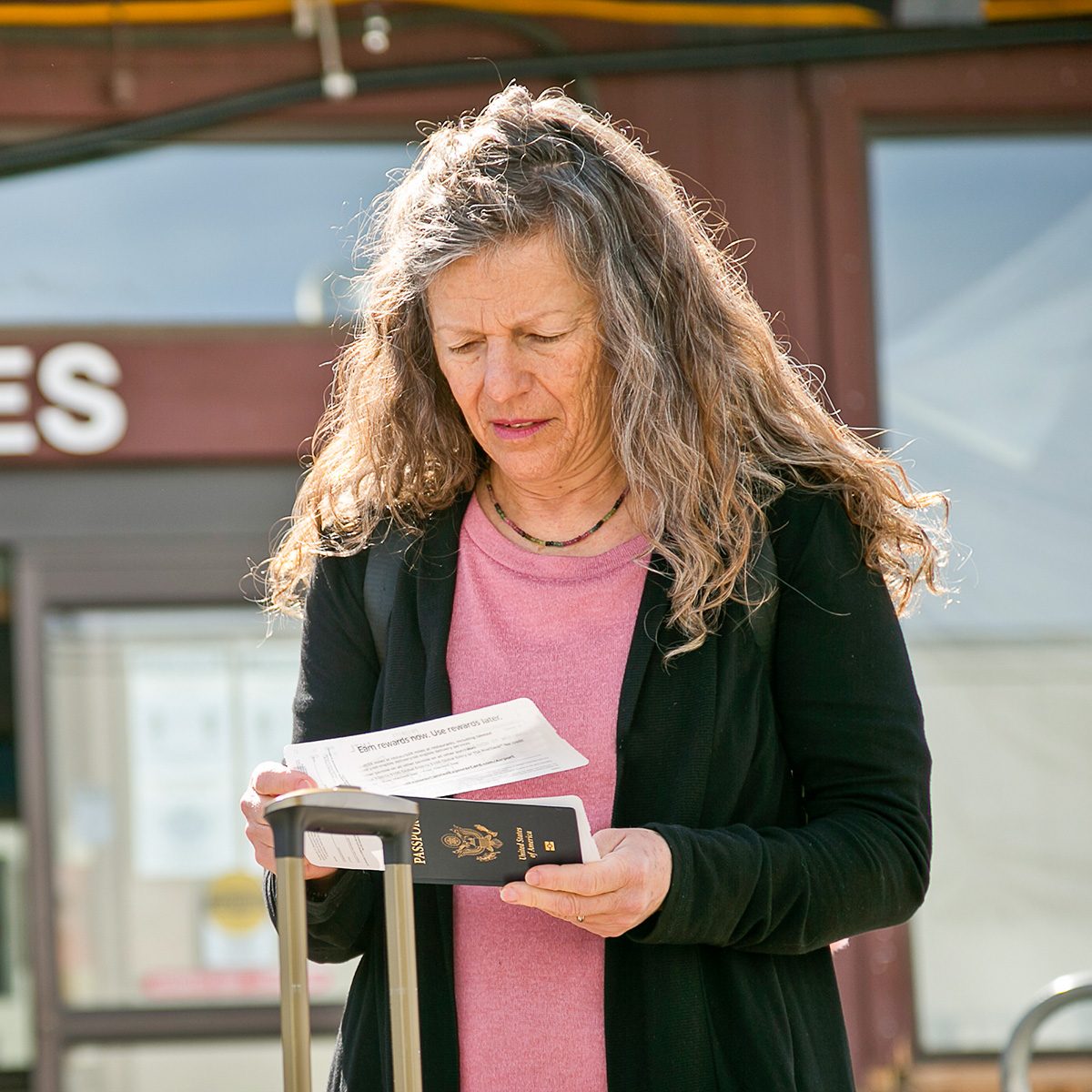A boarding pass might seem like a harmless travel memento, but it has the potential to turn your perfect getaway into a complete mess

Don’t Make This Dangerous Mistake with Your Boarding Pass

Whether it’s modern-day and digital or old-school and printed, a boarding pass is your golden ticket to adventure. But if you’re not careful, it could also become a one-way pass to trouble.
Read on to find out from two cybersecurity specialists why this travel document should stay private—just between you and the gate agent.
Get Reader’s Digest’s Read Up newsletter for more travel news, cleaning, tech and fun facts all week long.
What’s the big boarding pass mistake that could cost you?

While it’s normal to want to share (or boast about) the start of a big trip, it’s better to write a gushing caption than capture the moment by snapping a photo of your boarding pass and posting it to social media. “It’s a common mistake I see often—and it’s understandable,” says Dave Meister, a cybersecurity expert with more than a decade of experience. “You’ve booked a long-awaited or once-in-a-lifetime trip and want to share the excitement.”
What could a photo of your boarding pass provide a criminal?
While sharing a pic might seem like a harmless humble brag, almost everything on your boarding pass could be fodder for a determined criminal. “With your ticket data, someone can access your airline account, change bookings or cancel your flights,” Meister warns, adding that’s just the start of potential problems. “There are also other risks. Your name and travel plans can be combined with other leaked data to build a profile for phishing attacks or financial fraud.”
Crystal Morin, a cybersecurity strategist who began her career in national security with the United States Air Force, notes that the more data a criminal can gather, the closer you are to becoming the victim of identity theft. “Once an attacker can piece together a full identity profile of you—from breaches, successful social engineering or an account takeover—that’s when a nightmare can happen, like beginning to receive notifications that accounts are being opened in your name.”
Then there’s the issue of physical security. If someone knows you’re not home, your home is at higher risk of an invasion, as is your car from theft, Morin adds.
What kind of details on a boarding pass put you at risk?
That boarding pass may seem pretty basic at first glance, but a criminal could build a frighteningly accurate profile of you from that snapshot you just uploaded. Morin explains that boarding passes often have your full name—a perfect starting point for a cybercriminal. Even your cabin class can reveal a lot. “If you’re flying first class, for example, you may become a higher priority financial target,” she says.
Plus, your departure city suggests where you live, while the flight’s destination shows where you’re heading. Both of those things are useful for tracking patterns, especially if you travel often. And the flight date? Morin says that gives a criminal a clear window of opportunity, particularly troubling if they can suss out your home address.
Is it OK to post a boarding-pass picture after the trip is over?
Even if you’re back home and eager to share your adventures on social media, it’s still wise to keep shots of those boarding passes offline. “You might be excited to post about your travel, but save it for a beach selfie,” Morin advises. “A photo of your boarding pass is not worth the hassle of a ruined vacation, and it will probably get fewer ‘likes’ than something more scenic!”
Meister agrees. “A scenic photo post,” he says, “will always be a safer—and usually more beautiful—than a ticket with your details in plain sight.”
About the experts
|
Why trust us
Reader’s Digest has published hundreds of travel stories that help readers explore the world safely, easily and affordably. We regularly cover topics such as the best places to visit (and the best times to visit them), tips and tricks to zoom through airport security, flight-attendant secrets, hotel-room hacks and more. We’re committed to producing high-quality content by writers with expertise and experience in their field in consultation with relevant, qualified experts. We rely on reputable primary sources, including government and professional organizations and academic institutions as well as our writers’ personal experiences where appropriate. We verify all facts and data, back them with credible sourcing and revisit them over time to ensure they remain accurate and up to date. Read more about our team, our contributors and our editorial policies.
Sources:
- Dave Meister, cybersecurity expert with Check Point; email interview, April 2025
- Crystal Morin, cybersecurity strategist with Sysdig; email interview, April 2025



